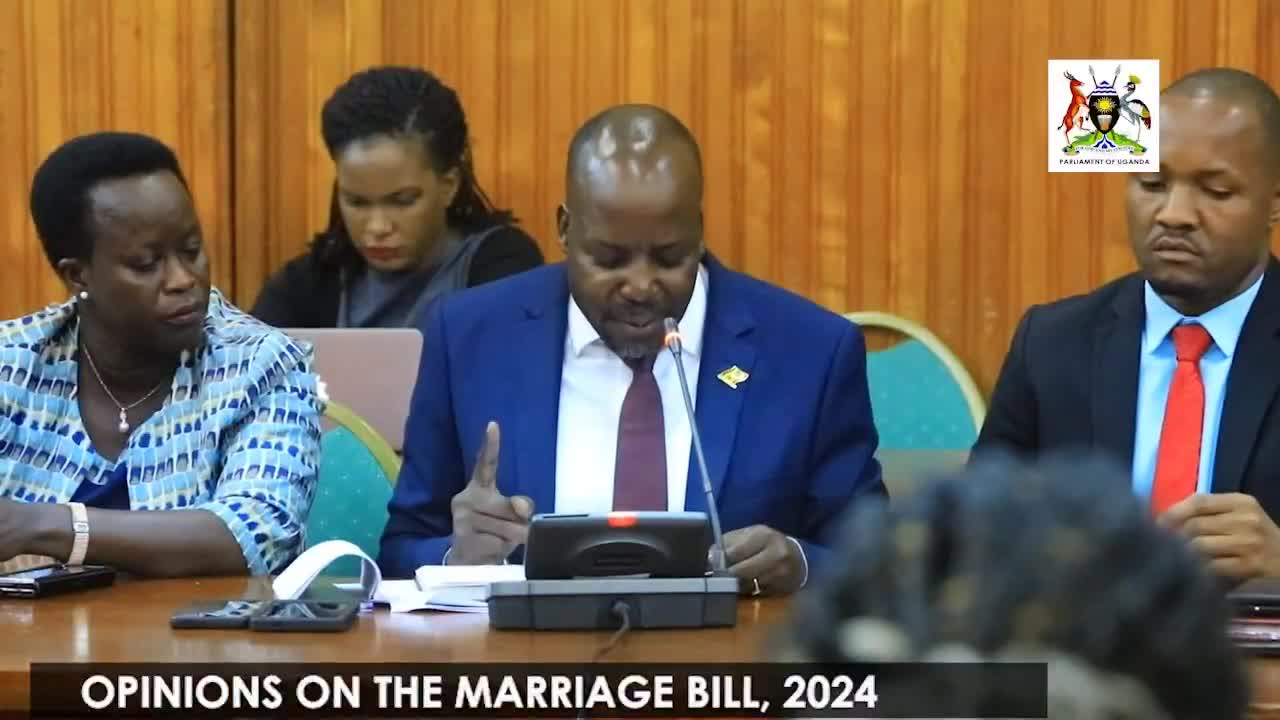Women Right Advocates Want Legalization of Cohabitation and Polygamy Reform in Marriage Bill, 2024
Women’s rights activists, today, appeared before the Committee on Legal and Parliamentary Affairs to present their proposals on the Marriage Bill, 2024, with a strong focus on reforming polygamous marriage practices and legalizing cohabitation.
The activists emphasized the need to protect women’s rights, promote fairness, and modernize the marriage framework in Uganda.
The Marriage Bill, which aims to reform and consolidate the laws surrounding marriage in Uganda, has garnered attention for its provisions on polygamy, cohabitation, and parental consent.
The Women’s Rights Organizations outlined critical changes that they believe are necessary for the law to better reflect the evolving societal norms and ensure equality within marriages.
A key recommendation from the Women’s Council is the removal of polygamy from the category of civil marriages. They argue that polygamous unions can often lead to the violation of women's rights, as they create an unequal power dynamic where women may be marginalized.
The activists advocate for a marriage law that recognizes monogamous relationships as the default for civil marriages to safeguard women from exploitation and ensure fairness.
While the removal of polygamy from civil marriages was the central recommendation, the activists also called for clear guidelines for those who choose polygamous relationships.
Their proposals include requiring consent from the first wife or any previous wives, proof of financial ability to support more than one spouse, and ensuring separate residences for each wife to minimize conflicts and promote fairness.
These measures would ensure that polygamy is practiced in a way that respects all parties involved.
The Women’s Council also urged that cohabitation be legalized and not criminalized. The activists argue that the financial burden of contracting a formal marriage often prevents many couples from legally formalizing their relationships.
By removing the criminalization of cohabitation, the law would recognize the rights of couples who live together but cannot afford the costs of a formal marriage, allowing them to be legally protected.
Another significant proposal put forth was the removal of mandatory parental consent for Christian marriages. Women’s rights activists believe that the requirement for parental approval limits the autonomy of young people, particularly women, in making their own marriage decisions.
They advocate for allowing individuals to decide freely on matters of marriage without the interference of outdated norms that place unnecessary restrictions on personal choice.
Lastly, the activists recommended that premarital counseling should be made optional, rather than a mandatory requirement before marriage. While counseling can be a valuable tool for couples, it should not be a legal obligation.
The activists emphasized the need for individuals to have the freedom to decide whether they want counseling, ensuring that it remains a personal choice.
As the Marriage Bill, 2024, moves through the parliamentary process, the recommendations from women’s rights activists have brought crucial issues to the forefront. The proposed changes aim to make the marriage framework more inclusive, equitable, and reflective of contemporary societal values.
The Committee on Legal and Parliamentary Affairs is now tasked with reviewing these suggestions carefully before they move forward with the Bill’s progress.
The outcome of this debate could pave the way for a more just and supportive legal framework for marriages in Uganda, one that prioritizes the dignity and rights of all individuals, especially women.
With growing support from activists and the Women’s Council, the hope is that Parliament will make these necessary changes to ensure a fairer and more inclusive approach to marriage in Uganda.
What's your view on this proposed amendment to the marriage bill 2024?
Join the Daily West Nile WhatsApp group now to never miss an update from us.Download Host Media Now from the Play Store to watch HostTV, listen to Host Rad
